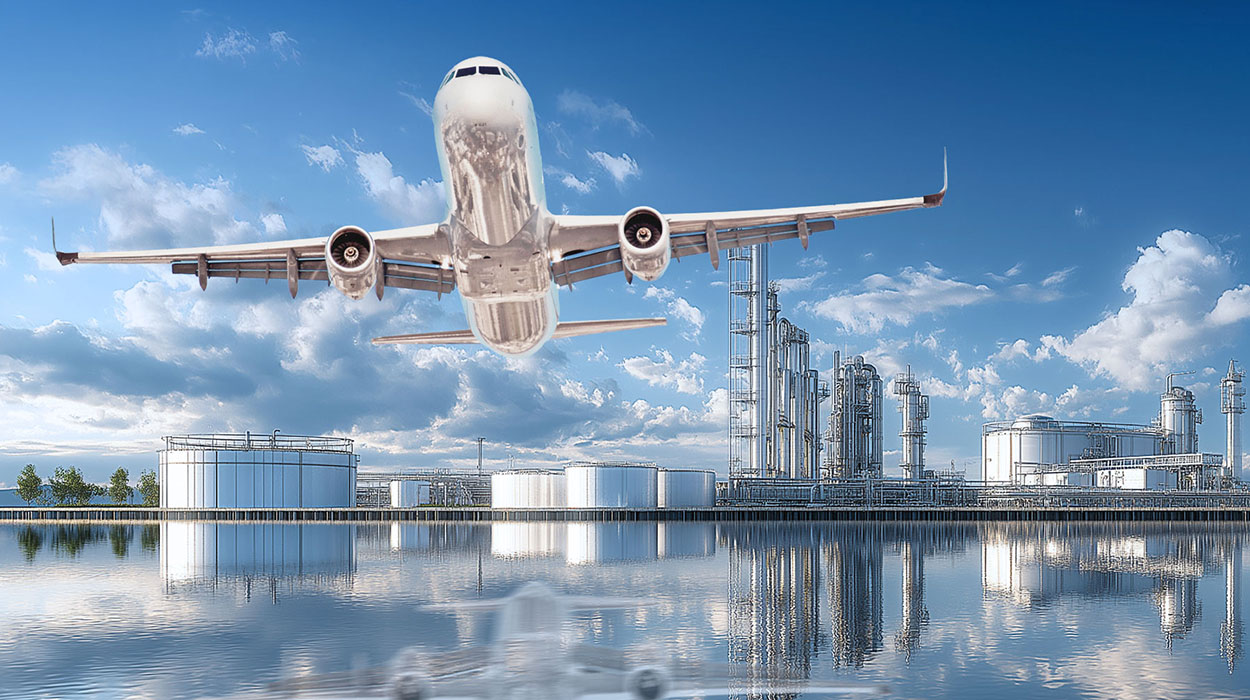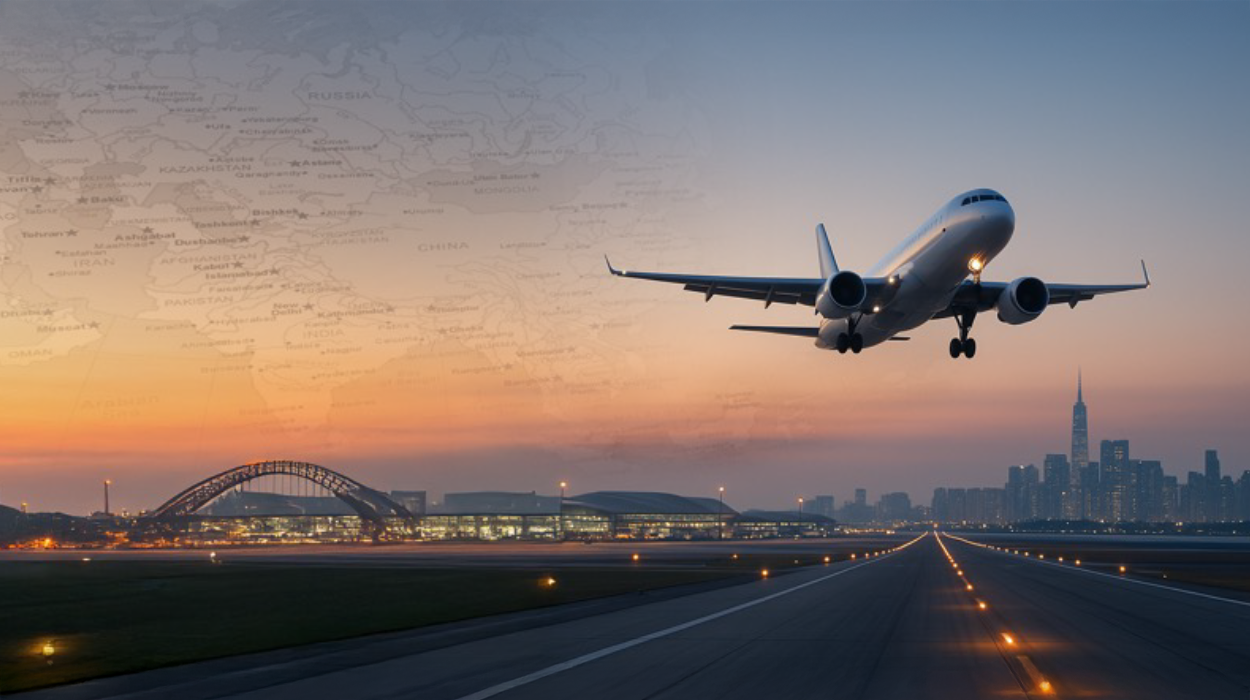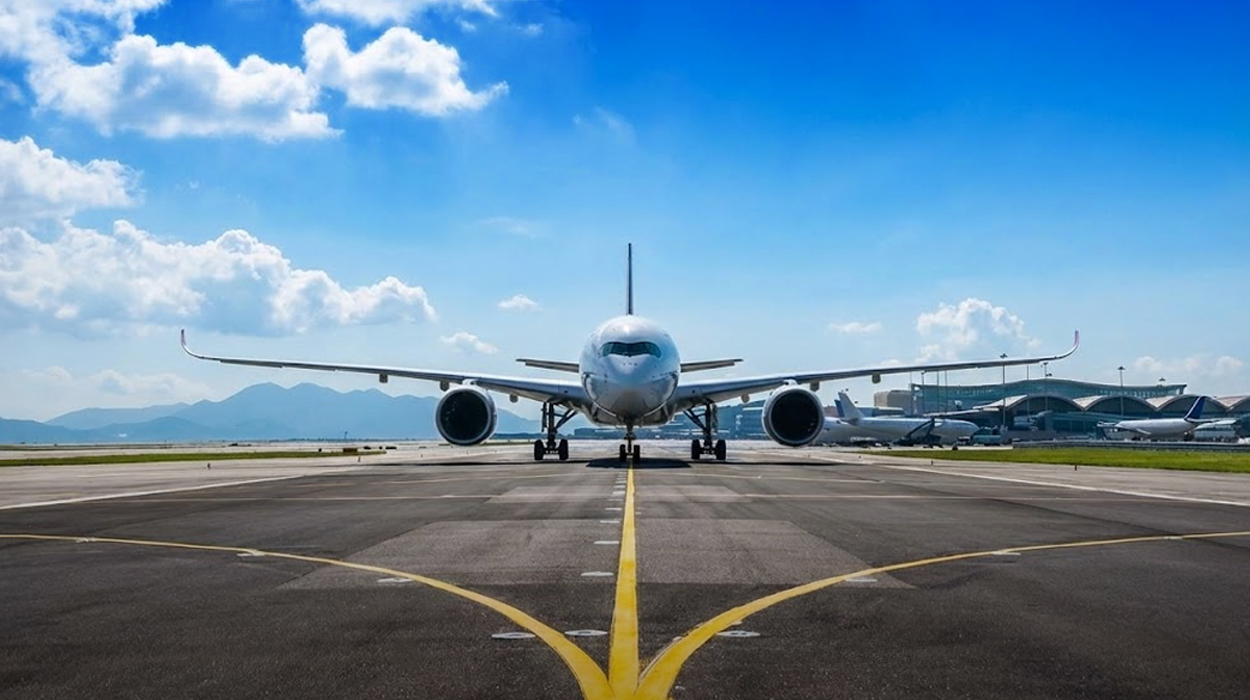
Why Aviation is a Force for Good
by Julia Sattel,
SkiesFifty Partner
The first time I got on a plane, I was fourteen years old. My father was a musician, and he decided to take my sister and me on a trip from our home in Cologne to Rome. The flight itself was unremarkable to my teenage self – like taking a bus through the sky – but when we landed, my whole life changed. In two short hours, I had left my familiar surroundings, switched languages and stepped into a new culture. It felt miraculous to be walking the streets of Rome, eating Italian food, seeing the Colosseum with my own eyes. Suddenly history was not just something in a book. It was something I could touch. And in that moment I realised how vast and vibrant the world really is. That experience shaped me, and I have never lost the sense of wonder I felt stepping into a new city for the first time. Looking back, I realise how deeply aviation has influenced the person I have become.
Most of my life has been spent between Germany, France and Spain, but I have also travelled extensively beyond these “homes”. The magic of travel is that it breaks down walls. It expands your understanding of the world, and of yourself. I have lost count of the times I returned from a trip with a new perspective and a deeper understanding of the world. In Pakistan, I discovered a depth of culture and profound kindness in everyday people I had never expected. In Argentina, I danced every day and met people whose humour and generosity sparkled despite economic challenges. In Japan, I found a sense of beauty in precision and ritual I had never experienced before. And I also discovered how all those places resonated with me in different ways. My travels have contributed to and expanded my sense of self. These are things you cannot experience via a video conference, or learn in a classroom. You have to see. You have to get lost in a foreign city. You have to talk to people.
Aviation has opened up opportunities that would have been unthinkable even a few decades ago.
The environmental debate is very close to my heart. When I am not working, I spend a lot of time in nature, and am absolutely committed to safeguarding the planet for future generations. Climate change is the defining challenge of our age. I understand why some well meaning voices suggest we should stop flying altogether. The environmental impact of aviation is real, and it deserves serious attention. But I believe that kind of reaction misses the deeper truth. Aviation does more than connect cities, it connects people, ideas, and economies. It has allowed cultures to mix and learn from each other. It has opened up opportunities that would have been unthinkable even a few decades ago. And it has played a central role in building peace and prosperity across the world. If we were to stop flying – or dramatically reduce it, it would mean cutting off lifelines for millions of people and countries. It would mean fewer jobs, fewer chances to learn from each other.
It would mean more nationalism, more fear of “the other,” and fewer shared experiences that bring us closer together. Instead, we need to create sustainable aviation. And I fundamentally believe this will happen. The path is not easy or automatic – but we will make it happen in time. It requires players within the aviation industry to move beyond individual agendas and pull more in the same direction. Every part of the ecosystem has a role to play—and while each player will keep their own identity and interests, we need to align around our common purpose to drive real, long-term progress. That is exactly why I chose to join SkiesFifty. I believe we can play an important role in coordinating, promoting and funding the innovations needed to make sustainable aviation a reality.
And I have seen this kind of collaboration work before. Back when I worked at Amadeus, we faced similar dynamics — companies were focused on short-term wins, hesitant to cooperate. But over time, we built technology systems that worked for the whole industry. We chose transparency. We chose fairness. And we patiently explained it to the various players, and one by one they came on board. In the end, it made the travel experience better for everyone. Win-win-win. And we have the same mindset at SkiesFifty. Because getting to net zero in aviation is not just a technical challenge. It is a human one. It means shifting how we work, how we invest, and how we think about competition.
There is no single fix that will get us to net zero. Sustainable aviation will come from a combination of efforts.
There is no single fix that will get us to net zero. My partners and I often say there is no “magic bullet”, no miracle technology that will solve it all. Sustainable aviation will come from a combination of efforts. Each one helps a little. And together, they add up to a real difference. There are many exciting innovations and initiatives which we can help to scale up and build upon. Sustainable Aviation Fuel, or SAF, is one of the most promising solutions available today. There are also new aircraft designs, new propulsion technologies, lighter materials, electrification of ground operations and smarter systems that all make flying more efficient. In the medium term, carbon offsets will also play a role – and it is important that these are designed and managed properly.
What is missing is coordination. Too often, we see individual companies working in isolation. Airlines compete over limited SAF supply instead of working together to increase it. Investments get scattered. Promising ideas struggle to scale. That is where SkiesFifty comes in. As an investment fund focused entirely on accelerating the transition to sustainable aviation, we bring together the demand side and the supply side. We help align incentives. We drive collaboration and use what we call “catalytic capital” — investments that not only support sustainable technologies but help signal to others which are the most promising innovations and how we can act together.
Aviation faces real challenges — but it is on the edge of a profound transformation. The benefits of getting this right touch every aspect of what flying makes possible — economic opportunity, cultural exchange, human connection. When we succeed, we will have created something extraordinary — a future where flying is not only accessible and enriching, but also clean, responsible, and fair. A future where at fourteen-year-old girl stepping off a plane in a new city feels a sense of wonder, excitement, and confidence in the future.
















